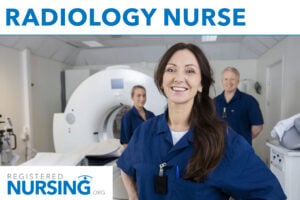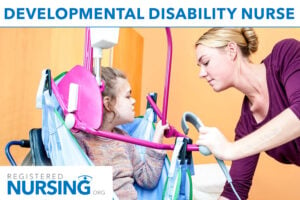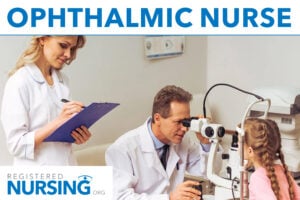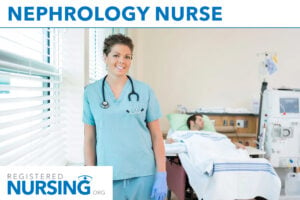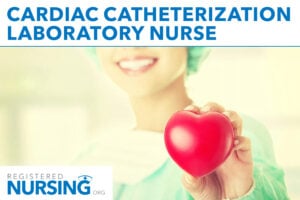Geriatric Nurse
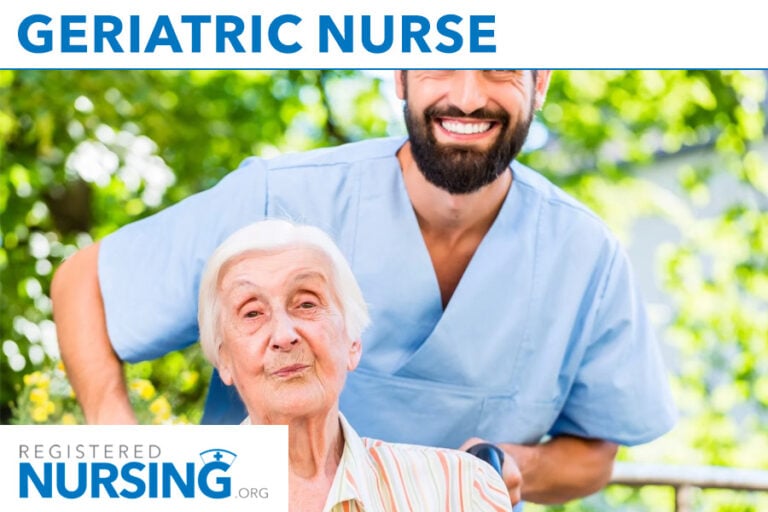
What is a Geriatric Nurse?
Geriatric nurses specialize in the care of elderly patients and are a crucial part of the healthcare team in helping older adults maintain their mobility, independence, and quality of life. They are trained to anticipate the needs of aging adults and work closely with primary care physicians, attending physicians, social workers, and families to provide individualized care to elderly patients. Geriatric nurses focus on age-related diseases and health concerns, including the following:
- Osteoporosis
- Cancer
- Stroke
- Alzheimer's disease/dementia
- Arthritis
- Chronic pain
- Poly-pharmacy
- Medication tolerance
- Falls
- Nutritional deficiency
- Impaired mobility
- Incontinence
Geriatric nurses can also address psychosocial issues. Older adults may have impaired mobility, which can result in feelings of loneliness, depression, and isolation. Mental health is as significant in geriatric patients as physical health. Additionally, abuse (physical, psychological, and financial) and neglect are a concern among the elderly. In fact, an estimated 4 million older adults experience abuse and neglect, according to the American Psychological Association, and geriatric nurses can work as advocates for them and provide them with the resources they need.
If you’re not quite sure whether geriatric nursing is right for you, you may be interested comparing it with these similar roles:
| Role | Primary Responsibilities | Work Setting | Education / Certification |
| Rehabilitation Nurse | Assist patients recovering from illness or injury, develop and implement rehabilitation plans | Rehabilitation centers, nursing homes | RN license, certification in rehabilitation nursing |
| Home Health Nurse | Provide care to patients at home, assist with daily activities, wound care, medication administration | Patient homes | RN or LPN license, experience in home care |
| Geriatric Nurse | Specialize in caring for elderly patients, manage chronic conditions, educate families | Hospitals, nursing homes | RN license, BSN, gerontological nursing certification |
| Long-Term Care Nurse | Provide care for elderly or chronically ill patients, administer medications, monitor health | Nursing homes, assisted living | RN license, BSN preferred, gerontology certification |
How to Become a Geriatric Nurse
Those considering a position as a geriatric nurse should have experience and interest in caring for an aging population. These patients present a unique set of challenges and require a unique set of skills to address them. A nurse willing to act as an advocate, resource, and liaison is an added benefit.
What are the Schooling Requirements for a Geriatric Nurse?
Nursing students can begin their careers in geriatric nursing by completing a two-year Associate’s Degree in Nursing (ADN) or a four-year Bachelor of Science in Nursing (BSN) and passing the NCLEX-RN exam to become licensed registered nurses. Many nursing schools incorporate geriatric nursing modules into their programs. Nursing students can also perform clinical rotations in healthcare facilities specializing in geriatric nursing, such as skilled nursing facilities or geriatric-centered hospital units.
Are Any Certifications or Credentials Needed?
Practicing Registered Nurses can obtain certification in gerontological nursing. RNs must complete an examination for certification, which lasts five years. The American Nurses Credentialing Center (ANCC) offers certification for nurses who:
- Currently hold an RN license
- Have two years of full-time RN experience (or equivalent)
- Have a minimum of 2,000 hours of clinical practice in the specialty of gerontological nursing within the last three years
- Have completed 30 hours of continuing education in gerontological nursing in the last three years
What Does a Geriatric Nurse Do?
Geriatric nurses are trained to anticipate the needs of an aging patient population and possess the skills needed to act on their behalf.
What Are the Roles & Duties of a Geriatric Nurse?
The roles and duties of a geriatric nurse may include:
- Patient education
- Medication management
- Liaison between patients, family, and care providers
- Maintaining functional mobility
- Maintaining psychosocial health
- Bedside nursing care of geriatric patients
Where Do Geriatric Nurses Work?
Geriatric nurses can work in a variety of healthcare settings, such as:
- Hospitals
- Skilled nursing facilities
- Nursing homes
- Retirement centers
- Memory care centers
- Outpatient ambulatory care clinics
- In-home care/home health
- As clinical educators in healthcare facilities, universities, and community colleges
- Case management (BSN-prepared RNs)
Geriatric Nurse Salary & Employment
While the field of nursing is rewarding in and of itself, specializing in geriatric nursing can be especially rewarding. In the United States, Baby Boomers are growing older and often account for more healthcare visits than younger Americans. This means the demand for geriatric nurses is increasing. The median salary for a geriatric nurse is $78,836 annually. However, salaries can vary depending on the state and city, years of experience, employer or facility, and degree and certifications held. Here’s a full breakdown:
| Average Annual Salary | |
| Lowest Earners | $57,296 |
| Lowest 25% of Earners | $66,706 |
| Median | $78,836 |
| Top 25% or Earners | $88,279 |
| Top Earners | $98,509 |
Helpful Organizations, Societies, and Agencies
- The American Nurses Credentialing Center
- National Gerontological Nursing Association
- American Geriatrics Society
- Eldercare Workforce Alliance


